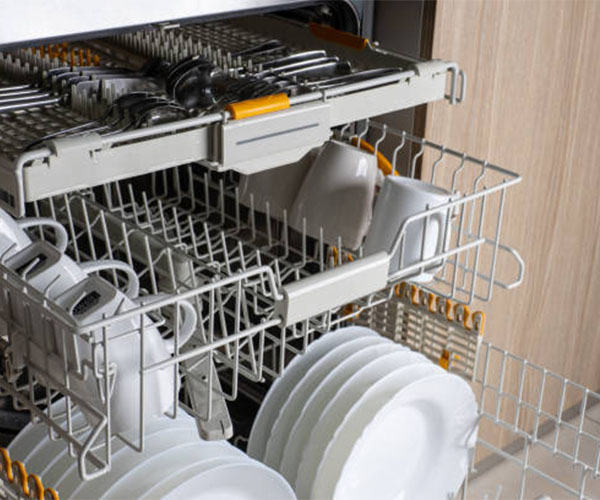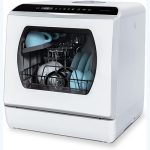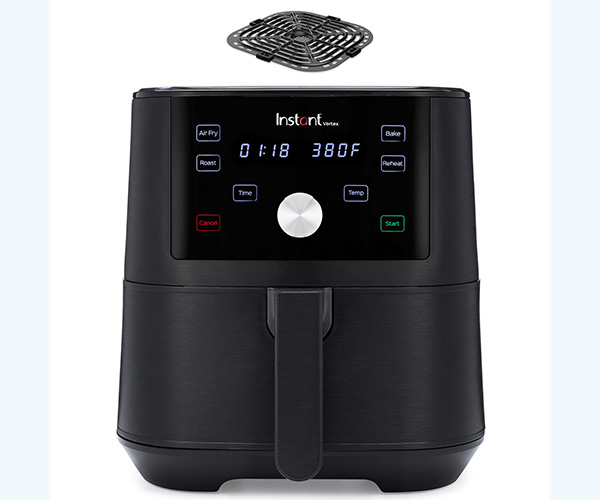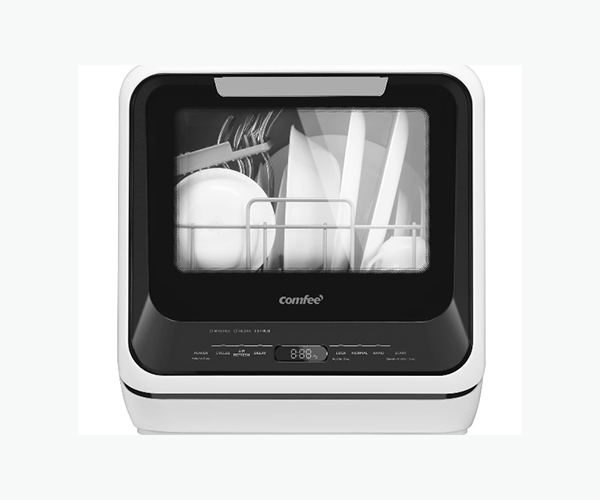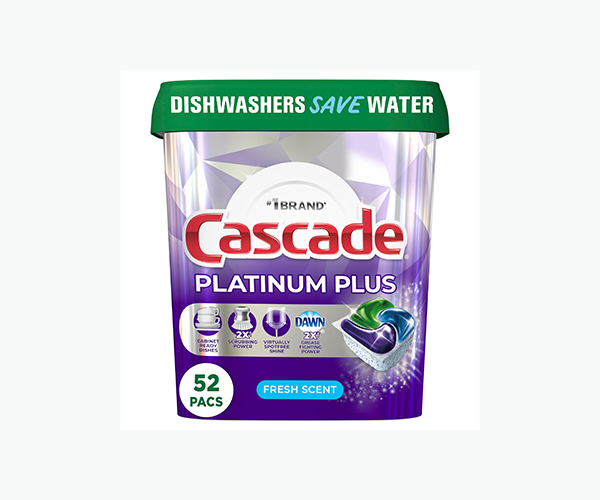Introduction:
Have you ever scrubbed away at a sink full of dirty dishes and pondered whether there might be a more effective way to handle this everyday task? Maybe you’ve looked at your dishwasher and wondered how effective it is in comparison to your manual labor. We’ll go into great detail in this extensive guide about the age-old argument between hand and dishwasher washing. I’m here to walk you through the advantages and disadvantages of both hand cleaning and using a modern dishwasher, like the Criterion dishwasher, having personally experienced both the calming rhythm of hand washing and the convenience of a dishwasher. Let’s investigate what is genuinely more efficient for your kitchen and lifestyle, from water usage to hygiene, cost-effectiveness to environmental impact.
Understanding Dishwashers
The dishwasher is one of the kitchen tools that has completely changed the way we do our regular dishwashing tasks. To fully appreciate the effectiveness of these appliances, it is essential to comprehend how they operate, particularly when comparing models such as the criteria dishwasher, a 24-inch portable dishwasher, or a standard appliance dishwasher.
- How Dishwashers Work:
- Modern dishwashers, including criterion dishwashers, function by spraying hot water and detergent onto the dishes. The water temperature and cycle duration depend on the selected setting.
- A powerful pump circulates water, ensuring thorough cleaning. Post-wash, the water is drained, and a heat element helps dry the dishes.
- Types of Dishwashers:
- Criterion Dishwasher: Known for its efficiency and robust cleaning capabilities. It’s a popular choice for those needing a reliable, full-sized kitchen appliance.
- 24 Inch Portable Dishwasher: Ideal for smaller kitchens or temporary living spaces. Despite its compact size, it offers substantial cleaning power and is easily movable.
- Appliance Dishwasher: Refers to built-in models that are standard in most modern kitchens. These offer various features and sizes, catering to different household needs.
- Advantages of Using a Dishwasher:
- Time Efficiency: Dishwashers save significant time compared to hand washing. Load the dishwasher, start the cycle, and you’re free to do other tasks.
- Water and Energy Efficiency: Modern dishwashers are designed to be energy-efficient. They use less water than hand washing, especially models like the criterion dishwasher.
- Hygiene and Sanitization: High temperatures used in dishwashers can kill more germs and bacteria compared to hand washing.
- Convenience: Dishwashers provide a convenient solution to deal with dirty dishes, making kitchen clean-up faster and more efficient.
In conclusion, whether you opt for a criterion dishwasher, a 24-inch portable dishwasher, or a standard appliance dishwasher, each brings unique benefits to the kitchen. Understanding these can help you make an informed decision about which type best suits your lifestyle and dishwashing needs.
The Art of Hand Washing Dishes
Unlike the sophisticated machinery found in machines such as the Criterion dishwasher or the 24 inch portable dishwasher, dishwashing by hand is a time-honored method that emphasizes simplicity and attention. Here, we explore the subtleties of this hand approach and compare its advantages and disadvantages with the effectiveness of an appliance dishwasher.
- Materials Needed:
- Quality dish soap
- Scrubbing tool (sponge/brush)
- Drying towel or rack
- Process:
- Begin by scraping off leftover food.
- Fill the sink with warm water and add soap.
- Soak and scrub each dish, starting with the least dirty.
- Rinse under running water to remove soap residue.
- Dry with a towel or air dry on a rack.
- Tips for Efficiency:
- Organize dishes by type for streamlined washing.
- Use a basin to conserve water.
- Apply the two-sink method: one for washing, one for rinsing.
- Mindful Hand Washing:
- Hand washing can be a therapeutic task, offering a moment of calm and focus.
- It allows for immediate inspection and satisfaction of cleanliness.
Understanding the skill of hand washing dishes exposes its unique blend of tradition, mindfulness, and personal work, even while the debate about hand cleaning versus utilizing an equipment like the Criterion dishwasher rages on. This comparison to contemporary dishwashing machines sheds light on how kitchen tasks are changing to accommodate a wider range of lifestyle choices and personal preferences.
Efficiency Analysis:
The argument over whether is more efficient in the kitchen—using a 24-inch portable dishwasher, a conventional dishwasher, or doing dishes by hand—often revolves around this issue. To solve this, let’s look at a few different factors:
- Water Usage:
- Criterion dishwasher: Modern dishwashers, particularly the criterion brand, are designed to be water-efficient. On average, they use significantly less water compared to hand washing.
- 24-inch portable dishwasher: Ideal for smaller kitchens, these compact units also emphasize water efficiency, though their capacity might require more frequent use.
- Hand washing: Typically consumes more water, especially if done without a water-conserving technique.
- Energy Consumption:
- Appliance dishwashers: They are energy-efficient, especially newer models that come with energy-saving settings.
- Hand washing: Generally, uses less electricity but can require more hot water, which indirectly increases energy use.
- Time Spent:
- Dishwashers: Save time by allowing you to load, start, and walk away.
- Hand washing: Can be time-consuming, depending on the number of dishes.
Considering these variables, it seems that running a dishwasher—whether it’s a 24-inch portable or a standard model—is generally more energy and water efficient. Even if it’s customary, hand cleaning might not always be the most effective option, particularly in busy homes or when handling a lot of dishes.

Environmental Impact
The discussion on how dishwashing affects the environment usually revolves around water and electricity consumption. Let’s compare the 24-inch portable dishwasher, general appliance dishwasher, and criteria dishwasher in this regard.
- Water Usage:
- Criterion dishwasher: Typically designed to be water-efficient, using less water per cycle compared to traditional hand washing.
- 24-inch portable dishwasher: Offers convenience and often uses slightly more water than built-in models but still less than hand washing.
- Hand Washing: Can consume significantly more water, especially if running water is used continuously.
- Energy Consumption:
- Appliance dishwasher: Generally energy-efficient, especially those with Energy Star ratings, reducing overall environmental impact.
- Hand Washing: Lower energy usage for heating water, but this can vary based on methods used.
- Detergent Use:
- Dishwashers: Require specific types of detergents, which can have varying environmental impacts.
- Hand Washing: Offers flexibility in choosing eco-friendly soaps and detergents.
- Carbon Footprint:
- Criterion dishwasher and other dishwasher models: The manufacturing process, usage, and eventual disposal contribute to their carbon footprint.
- Hand Washing: Typically has a lower carbon footprint but depends on the source of energy for heating water.
- Longevity and Disposal:
- Dishwashers: Have a finite lifespan and their disposal can impact the environment.
- Hand Washing: No disposal issues, but tools like sponges and brushes need regular replacement.
In conclusion, while dishwashers—especially energy-efficient models like the 24-inch portable dishwasher or the Criterion dishwasher—tend to be more water- and energy-efficient, the decision to use a dishwasher or wash by hand also depends on the user’s environmental values, particular appliances that are available, and personal habits.
Cost Analysis of Dishwashers vs. Hand Washing
When evaluating how cost-effective different dishwashing techniques are, it’s critical to weigh the long-term financial effects of hand washing vs utilizing a contemporary appliance dishwasher, like a 24-inch portable dishwasher or a standard dishwasher. This is an explanation:
When considering the cost-effectiveness of dishwashing methods, it’s essential to compare the long-term financial implications of using a modern appliance dishwasher, such as a criterion dishwasher or a 24-inch portable dishwasher, against traditional hand washing. Here’s a breakdown:
- Initial Investment:
- Appliance Dishwasher: A higher upfront cost is involved. For example, a criterion dishwasher or a portable 24-inch model can be a significant investment.
- Hand Washing: Requires minimal initial investment, mainly for basic supplies like dish soap and scrubbers.
- Ongoing Expenses:
- Appliance Dishwasher:
- Electricity costs for running cycles.
- Water usage, though modern dishwashers are designed to be water-efficient.
- Detergent expenses, although they can be lower per wash compared to hand washing.
- Hand Washing:
- Regular purchase of dish soap.
- Higher water usage, as hand washing typically consumes more water per session compared to dishwashers.
- Additional costs for sponges and other cleaning materials.
- Appliance Dishwasher:
- Maintenance and Repair:
- Appliance Dishwasher: Potential repair costs over time. Regular maintenance is required to ensure efficiency.
- Hand Washing: No maintenance costs, but replacement of washing tools is necessary over time.
- Energy Efficiency:
- Appliance Dishwasher: Newer models, especially energy-efficient ones like some criterion dishwashers, use less water and energy per cycle compared to older models.
- Hand Washing: Generally consumes more water, which can lead to higher energy bills if using hot water.
- Long-term Savings:
- Appliance Dishwasher: The initial higher investment can pay off over time through savings in water and energy bills, especially with energy-efficient models.
- Hand Washing: Lower initial costs but potentially higher long-term expenses due to increased water and energy usage.
In conclusion, buying a contemporary dishwasher, such a criteria dishwasher or a portable 24-inch machine, might result in more substantial savings and efficiencies over time, even while hand washing has its advantages in terms of lower initial expenses. But this choice is heavily influenced by unique kitchen layouts and personal tastes.
Hygiene and Cleanliness
The argument over hand washing versus utilizing a dishwasher—such as a 24 inch portable dishwasher or a Criterion dishwasher—when it comes to kitchen hygiene is very important. The following are important considerations when comparing cleanliness levels and how well bacteria and germs are killed:
- Effectiveness Against Germs:
- Dishwashers, especially high-temperature models like appliance dishwashers, can kill more bacteria due to higher temperatures.
- Hand washing effectiveness depends largely on the diligence and method of the person washing.
- Consistency:
- Dishwashers offer a consistent level of cleanliness.
- Hand washing might vary, depending on factors like water temperature and thoroughness.
- Sanitizing Agents:
- Modern dishwashers often have sanitizing cycles, utilizing stronger agents than typical hand washing.
- Rinsing Efficiency:
- Dishwashers, such as a 24 inch portable dishwasher, ensure thorough rinsing, often better than hand washing.
- Detergent Usage:
- Criterion dishwashers use specifically designed detergents that are more effective against bacteria compared to regular dish soaps.
- Cross Contamination:
- Reduced cross-contamination in dishwashers due to compartmentalized washing.
In summary, dishwashers, especially new and efficient ones like 24 inch portable dishwashers or Criterion dishwashers, often offer a more consistent, high-temperature environment conducive to sanitization and cleanliness, even though hand cleaning can be beneficial with the appropriate technique.
Convenience and Usability
Many aspects are taken into account when comparing the practicality and convenience of dishwashers vs hand cleaning, particularly when talking about goods like the Criterion dishwasher, the 24 inch portable dishwasher, and other appliance dishwasher types. This is an explanation:
- Space and Size: The 24 inch portable dishwasher is a game-changer for smaller kitchens. Its compact size doesn’t sacrifice cleaning power, making it an ideal solution for apartments or homes with limited space.
- User-Friendly Features: Modern appliance dishwashers are designed with user convenience in mind. Features like adjustable racks, multiple wash cycles, and quiet operation make them incredibly user-friendly.
- Time-Saving: One of the biggest advantages of using a dishwasher, particularly a criterion dishwasher, is the time you save. Load it up, start the cycle, and you’re free to focus on other tasks or relaxation.
- Physical Effort: Unlike hand washing, dishwashers require minimal physical effort. This is especially beneficial for individuals with mobility issues or those who find hand washing physically taxing.
- Adaptability: Many dishwasher models now come with advanced features that adapt to different types of utensils and levels of soiling, providing a thorough clean every time.
- Efficiency in Operation: Dishwashers, especially energy-efficient models, streamline the cleaning process and use resources like water and electricity more efficiently than hand washing.
- Consistency in Cleaning: Dishwashers, such as the criterion dishwasher, offer consistency in cleaning. Each cycle is designed to clean dishes thoroughly, leaving no room for the variability that often comes with hand washing.
Recall that the decision between hand cleaning and using a dishwasher is influenced by your priorities and lifestyle choices in addition to the size of your kitchen and your demand for dishwashing.

Maintenance and Longevity
Whether you have a 24-inch portable dishwasher, a criteria dishwasher, or any other type of appliance dishwasher, maintaining the durability and effectiveness of your dishwasher is essential to guaranteeing its long-term operation. Here is a guide on proper dishwasher maintenance:
- Regular Cleaning:
- Wipe down the interior, including the gasket and spray arms.
- Clean the filter regularly to prevent clogs and maintain efficiency.
- Proper Usage:
- Avoid overloading your dishwasher. This ensures thorough cleaning and prevents mechanical strain.
- Use the recommended detergent and rinse aid for optimal results.
- Periodic Inspections:
- Check for any wear or damage, especially in hoses and seals.
- Look for signs of lime scale and use a descaler if necessary.
- Energy Efficiency:
- Run your dishwasher at full capacity to save energy and water.
- Consider eco-friendly cycles for less soiled dishes.
- Professional Servicing:
- Schedule annual check-ups with a professional technician to maintain its optimal performance.
- Upgrade When Needed:
- If your dishwasher is too old or constantly requires repairs, upgrading to a more efficient model like a criterion dishwasher or a 24 inch portable dishwasher might be more cost-effective in the long run.
Remember, proper care and maintenance of your dishwasher not only extend its lifespan but also ensure that it remains a reliable and efficient appliance in your kitchen.
Making the Right Choice:
Choosing the correct dishwasher can make all the difference in the efficiency of your kitchen. Here are some crucial things to remember:
When it comes to kitchen efficiency, selecting the right dishwasher can be a game-changer. Here are some key considerations:
- Size and Space: If you have a compact kitchen, a 24 inch portable dishwasher may be ideal. It offers flexibility and can be stored away when not in use.
- Capacity and Usage: For larger families or frequent entertainers, a full-size appliance dishwasher ensures you can clean more dishes in one go.
- Efficiency: Modern dishwashers, including criterion dishwasher models, are designed for energy and water efficiency.
- Features: Look for features that suit your lifestyle, such as delay start, soil sensors, or specific wash cycles for delicate items.
- Budget: Balance your upfront cost with long-term savings in water and energy bills. A more expensive model might be more economical in the long run.
- Brand and Warranty: Research brands for reliability and service. A good warranty can save you from unexpected repair costs.
FAQs about the Criterion dishwasher:
- What sets the Criterion dishwasher apart from other brands?
- Criterion dishwashers are known for their efficient cleaning, robust durability, and user-friendly interfaces, making them a popular choice among various households.
- Does the Criterion dishwasher have energy-efficient models?
- Yes, Criterion offers energy-efficient dishwashers that save on electricity and water, aligning with eco-friendly practices.
- Can Criterion dishwashers handle large pots and pans?
- Most models have adjustable racks and spacious interiors, accommodating larger cookware with ease.
- What types of dishwashing cycles does a Criterion dishwasher offer?
- They typically feature multiple wash cycles, including intensive, eco-friendly, and quick wash options, catering to different cleaning needs.
- Is installation of a Criterion dishwasher complicated?
- Installation is straightforward, but it’s recommended to follow the manufacturer’s guide or hire a professional for proper setup.
- How does the Criterion dishwasher perform in terms of noise?
- These dishwashers are designed to operate quietly, minimizing disruption in home environments.
- Are Criterion dishwashers easy to maintain and clean?
- Yes, they are designed for easy maintenance, with most models featuring self-cleaning cycles and simple-to-clean filters.
- What warranty options are available for Criterion dishwashers?
- Criterion dishwashers usually come with a manufacturer’s warranty, the specifics of which can vary by model and retailer.

Conclusion
In the blog “Dishwasher vs. Hand Washing: What’s More Efficient?”, the debate between using a dishwasher and hand washing is explored. The article begins with an engaging introduction, drawing from personal experiences. It then delves into the workings and types of dishwashers, including the criterion dishwasher, highlighting their advantages. The art of hand washing is discussed through a step-by-step process and efficiency tips. The blog compares the two methods in terms of water usage, energy consumption, and time spent. It evaluates environmental impacts, cost analysis, hygiene, cleanliness, and the convenience and usability of both methods. Maintenance and longevity are also examined, providing tips for both approaches. The conclusion offers a summary and personal recommendations, and FAQs address common concerns.

